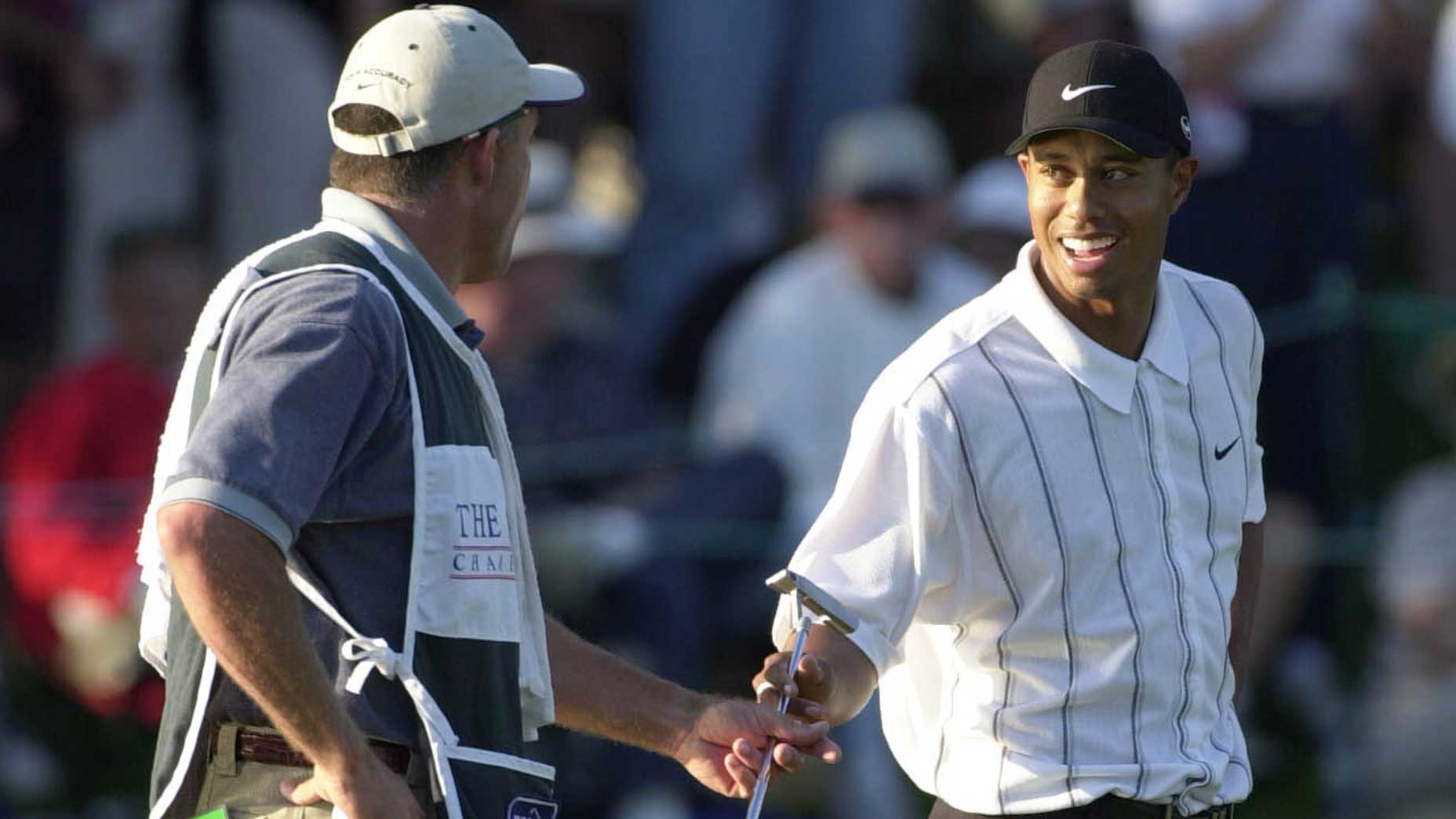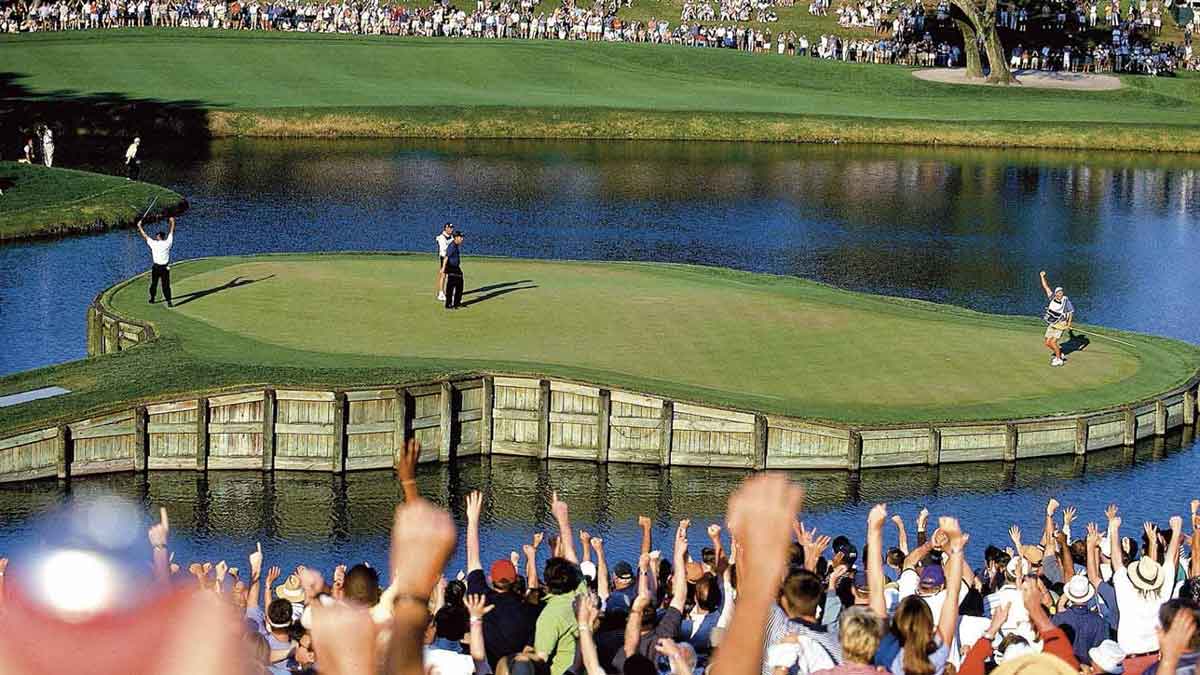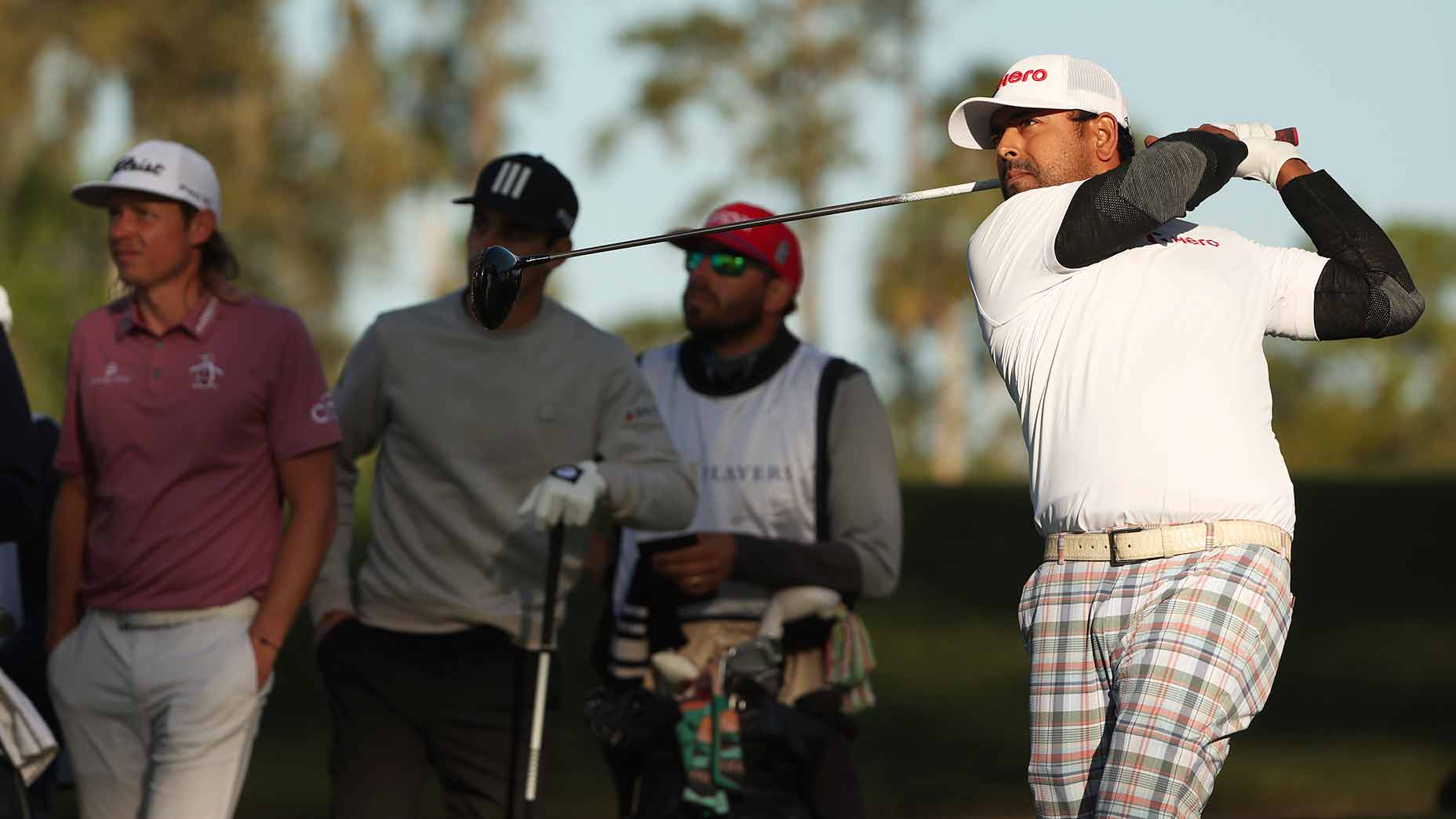
Steve Williams enjoys No. 17 at TPC Sawgrass. But he thinks it could be even better.
Getty Images
The debate around TPC Sawgrass’ 17th hole reignited over the weekend when the Players Championship descended into a temporary state of chaos. Wind whipped across the famous island green, dozens of golfers found the water and some of the world’s best golfers saw their tournament hopes drown along with their balls.
Whether that chaos was a bug or a feature depends on your perspective. The general sentiment among golf fans seemed to be positive; the PGA Tour’s most famous hole was providing ample entertainment. But Golf Channel analyst Brandel Chamblee led the opposition, first calling for the tournament to stop play and later saying that on a windy day the hole was “most certainly” the worst on the PGA Tour.
Enter Steve Williams. Tiger Woods’ former caddie was there for the most famous moment in the island’s history (yes, that putt) and was on the bag for two Woods wins at TPC Sawgrass. In a recent podcast appearance on Chasing Majors — the excellent deep-dive pod which goes deep on the duo’s success together — Williams proposed a fix to the setup at Sawgrass.
“I’ve always thought it’s a great hole and it’s a spectacular hole for galleries,” Williams said by way of introduction. He recalled players checking their tee times with particular interest Players week, hoping they wouldn’t have to play No. 17 on Friday afternoon.
“It’s not a shot you want to hit in the water in front of all those fans who’ve had an excessive amount of alcohol on that hole.”
As for his primary objection? Williams says he’s not a fan of the island green’s position in the round.
“I like the hole but I don’t like it being the 17th hole,” Williams said. “I think that hole would be a better hole if you swap it around and make it the 8th hole, the second-to-last hole on the front nine.”
He cited the hole’s randomness and its penal nature in his reasoning.
“Whilst it’s a very good hole, there are a lot of good shots that get hit there that go in the water,” he said. “It’s surrounded by water, the wind is very tricky and sometimes the green gets very firm and it’s hard to stop the ball on the green. So there’s been a lot of good shots to go in the water.”
This year the challenge has actually been the opposite; the green is so soft that players have been spinning shots from the middle of the green all the way back off the front and into the water. In either situation, the target is effectively smaller than it appears. And if things go wrong, players only have one hole left for redemption.
“If you hit a poor shot there and it goes in the water, you can’t recover,” Williams said. “I don’t think it’s a fair hole to lose the tournament on if you hit arguably a good shot and gets eaten up and you make a 5 or 6.”
Williams cited Len Mattiace as a cautionary tale. In 1998 Mattiace was chasing his first PGA Tour victory. He reached the 17th hole on Sunday trailing by just one shot. Then he hit 9-iron over the green and into the water, found the bunker from the drop zone, hit his bunker shot into the water and eventually walked off with a quintuple-bogey 8.
“He was a guy having the career week of his life, playing fantastic golf and ran up an incredible number there,” Williams remembers. “And he was pretty much never heard from since because it just devastated him. Had that hole been on the front nine of course you’d have 10 holes to recover, but you can give the tournament away right there.”
Mattiace wound up making birdie at 18 to finish T5, just four shots behind winner Justin Leonard. You can do the painful math yourself.
Williams’ memory of Mattiace’s subsequent decline is overstated; Mattiace actually won twice in 2002 and finished runner-up at the 2003 Masters to reach No. 26 in the world. But it’s tough to have a more dramatic moment than those splashes at Sawgrass in 1998.
“I like the hole, but I think it’s too penal to be the 17th hole,” Williams concluded. “Particularly at a tournament of that importance.”
You can listen to the entire podcast (plus more from Chasing Majors with Williams and Priest) here.









